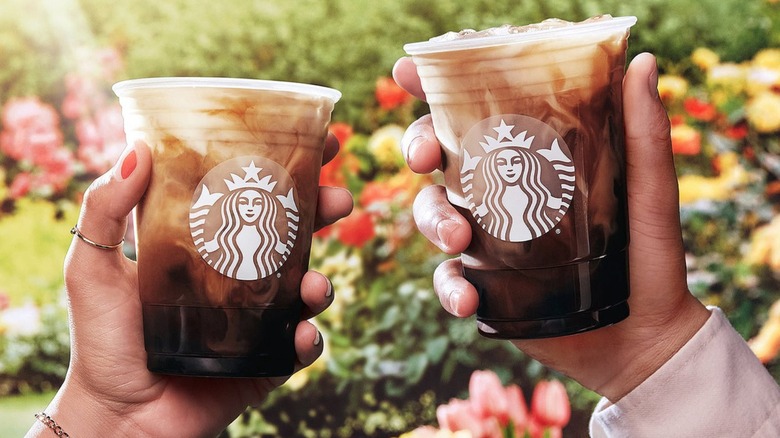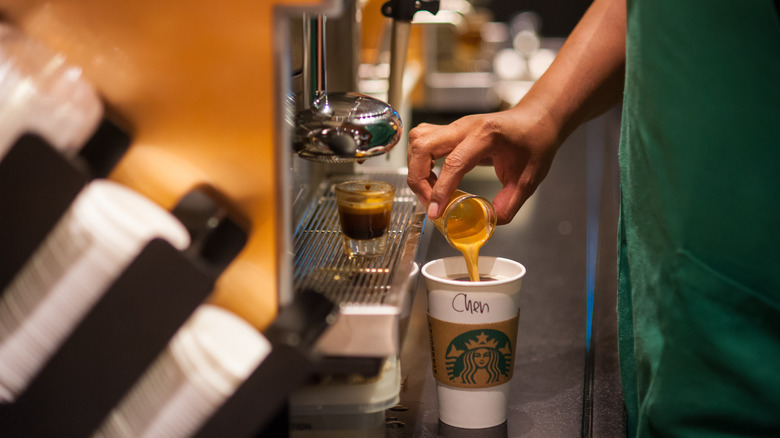Customers Are Urging Starbucks To Cut Added Charges For Dairy-Free Milk
If you want your lattes or Frappuccinos made with non-dairy milk at Starbucks, you'll have to pay for it (via Yahoo!). Other coffee companies have already dropped the charges. Caribou Coffee paved the way for removing the charges this year, and other chains, like Blue Bottle and Philz, offer non-dairy milk for free too. But Starbucks has continued to refuse, and customers and celebrities alike are calling the coffee giant out.
Calls for change are coming from both inside and outside of the company. The animal welfare group PETA became a shareholder in the company in 2019 to advocate for more environmentally-friendly practices, such as alternative milk. Even music legend Paul McCartney called out Starbucks for its milk charges. On social media, Starbucks fans are sounding off. "I don't think it's fair that Starbucks charges you extra for non-dairy milk. Like I genuinely cannot consume cow's milk," one Twitter user wrote. "Every café that charges extra for nondairy milk SHAME, specifically [Starbucks]," said another person.
In the face of this pressure, the chain has dropped vegan milk surcharges in other countries, like Germany and the U.K., but American and Canadian customers are still being forced to pay up to a dollar extra to skip the dairy. So why doesn't Starbucks cut its added charges for non-dairy milk? The answer might have to do with how the U.S. government regulates farming and agriculture.
How U.S. food policy helps explain Starbucks' milk price
In response to increasing public pressure for Starbucks to drop its added charges for customers who order alternative milk, the company explained itself. Then-Chief Operating Officer Roz Brewer said the company's decision was about economics: Dairy milk is cheaper for the company to purchase, so they're able to charge less for it. "We expect costs to come down as the supply chain for plant-based options matures and we will pass this on to our customers," she said.
And it's true: Supply issues have been a headache for the giant coffee corporation recently. Last year, one of the stores' most important items, cups, fell victim to supply chain disruptions. At another location, espresso was unavailable for several months, and TikTok was floored.
But the reality is more complicated. The reason cow's milk is cheaper than non-dairy milk in the U.S. is largely because the government subsidizes dairy. In 2022, for example, the U.S. Department of Agriculture gave more than $80 million to support the dairy industry, which otherwise would lose money as demand for cow's milk drops.
Perhaps it would cost the company a little more money to eliminate charges for non-dairy milk because of these policies, but compared to the company's revenues — which topped $30 billion globally in 2022 — eliminating a 70-cent surcharge seems much more doable.

